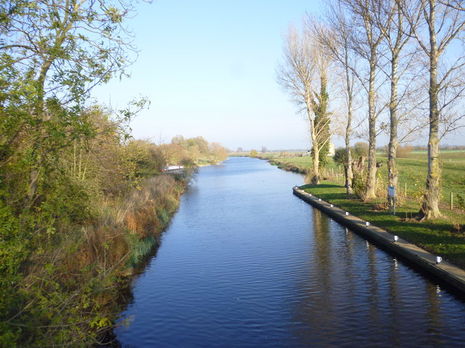Fake leaves able to generate clean energy, researchers find
They can produce a clean alternative to fossil fuels using artificial photosynthesis

In the battle to reduce our reliance on fossil fuels, methods to generate and store clean energy are becoming urgent. And researchers from the University of Cambridge may have just found the answer.
Scientists have been able to develop floating “artificial leaves” that use sunlight and water to produce clean fuels. It marks the first time that clean fuel has been generated on water.
Tests on the River Cam found that the artificial leaves were about as efficient as real plants, converting about one to two percent of solar energy into fuel. According to the US Department of Energy, for artificial photosynthesis to be viable economically, efficiency would need to rise above five percent.
A bulky prototype of the artificial leaf was initially developed in 2019 but was too heavy to float. The most recent development has lightened the leaves to enable buoyancy.
The new, lighter leaves bring two main advantages. They are cheaper to produce and transport, and more excitingly, the ability to float makes them far more versatile – they can be deployed in any body of water.
Conventional clean methods of energy production, like solar panels and wind turbines, are notoriously difficult and expensive to store. This makes them unsuitable to power things like cargo ships and aeroplanes. Artificial leaves on the other hand make simple fuels which are either burned directly (such as Hydrogen), or used to produce better fuels.
One of the lead researchers Dr Virgil Andrei stated: “artificial leaves could substantially lower the cost of sustainable fuel production.”
The next step is to streamline the technology to make it more efficient. Lead researcher Professor Reisner said: “I really believe that artificial photosynthesis will be one part of that energy portfolio over the next two decades.”
Perhaps one day the sight of artificial leaves blocking up the gutters will be just as common as actual leaves blocking them. And you know what, we may not even moan about it.
 News / Eight Cambridge researchers awarded €17m in ERC research grants27 December 2025
News / Eight Cambridge researchers awarded €17m in ERC research grants27 December 2025 News / Downing investigates ‘mysterious’ underground burial vault 29 December 2025
News / Downing investigates ‘mysterious’ underground burial vault 29 December 2025 Lifestyle / Ask Auntie Alice29 December 2025
Lifestyle / Ask Auntie Alice29 December 2025 Sport / Hard work, heartbreak and hope: international gymnast Maddie Marshall’s journey 29 December 2025
Sport / Hard work, heartbreak and hope: international gymnast Maddie Marshall’s journey 29 December 2025 Interviews / Meet Juan Michel, Cambridge’s multilingual musician29 December 2025
Interviews / Meet Juan Michel, Cambridge’s multilingual musician29 December 2025






